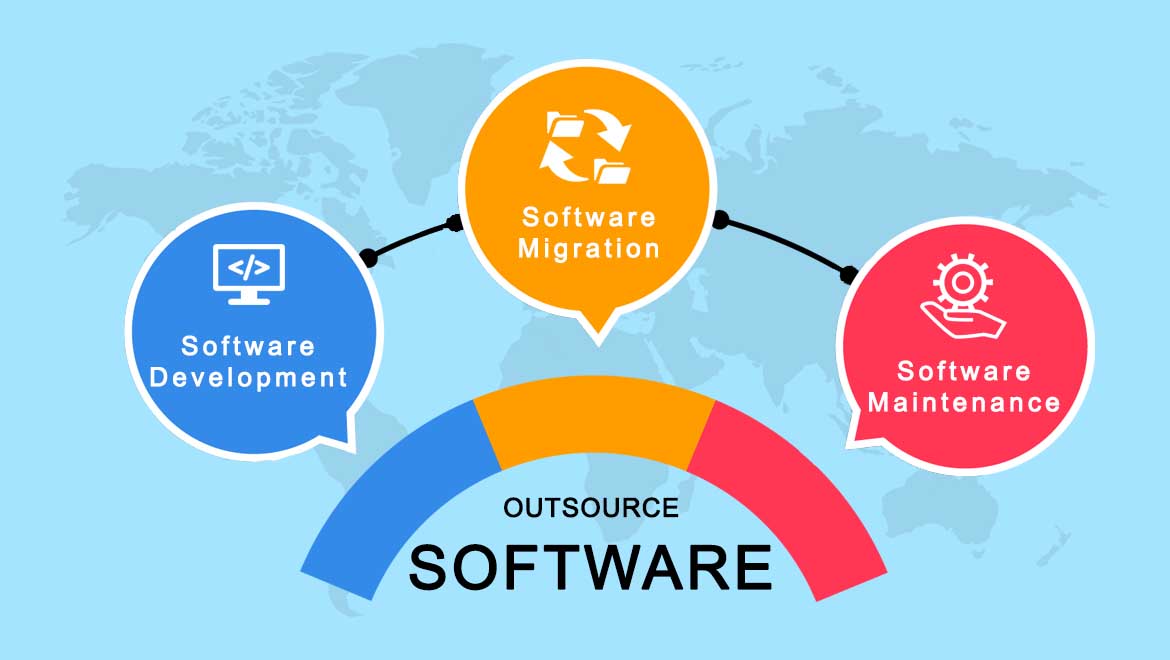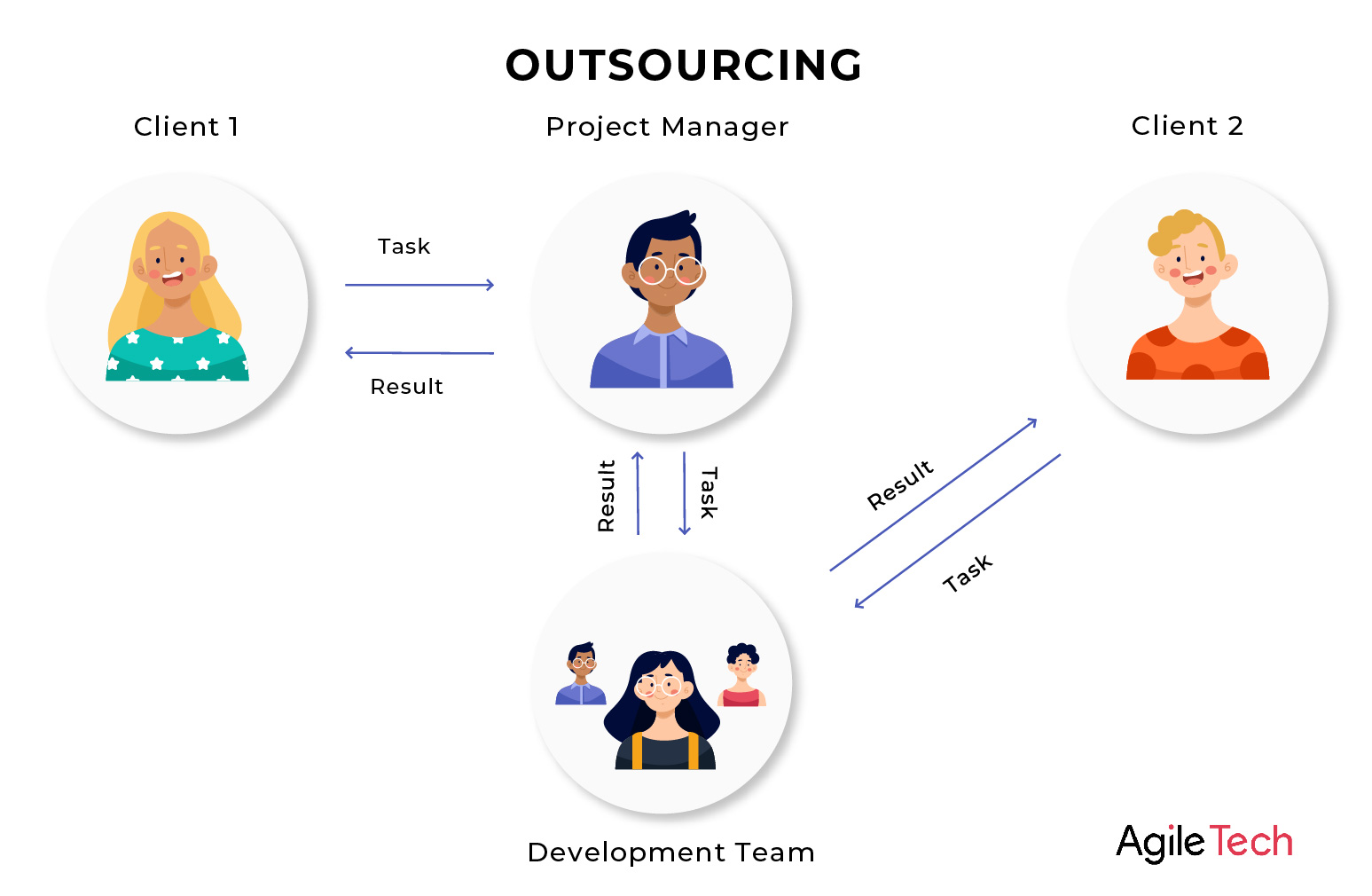Starting with company development outsourcing software, this paragraph aims to provide an engaging overview of how outsourcing software development can benefit companies in various aspects such as growth and productivity. As businesses strive to stay competitive and innovative, the decision to outsource software development plays a pivotal role in achieving success.
Exploring the importance, factors to consider, best practices, and challenges in company development outsourcing software will shed light on the intricate process and strategies involved in this approach.
Importance of Company Development Outsourcing Software
Outsourcing software development has become a crucial strategy for companies looking to stay competitive in today’s fast-paced business environment. By leveraging the expertise of external software development teams, companies can achieve significant benefits that directly contribute to their growth and success.
Key Benefits of Using Outsourcing Services for Software Development
- Cost Efficiency: Outsourcing software development allows companies to access top talent at a fraction of the cost compared to hiring in-house developers. This cost savings can be allocated to other areas of the business.
- Access to Specialized Skills: Outsourcing provides access to a diverse pool of talent with expertise in various technologies and programming languages, ensuring the development of high-quality software solutions.
- Time Savings: By outsourcing software development, companies can accelerate the development process and bring products to market faster, gaining a competitive edge in the industry.
- Scalability: Outsourcing allows companies to easily scale their development team up or down based on project requirements, providing flexibility and agility in responding to changing business needs.
How Outsourcing Software Can Enhance Efficiency and Productivity
- Focus on Core Competencies: Outsourcing software development allows companies to focus on their core business functions, while leaving the technical aspects to skilled professionals.
- 24/7 Development: With outsourcing teams located in different time zones, companies can benefit from round-the-clock development cycles, speeding up project delivery and increasing productivity.
- Risk Mitigation: Outsourcing software development distributes risk across multiple parties, reducing the impact of unforeseen challenges or delays on the company’s operations.
Factors to Consider When Outsourcing Software Development

It is crucial for companies to carefully consider several factors before deciding to outsource software development. Making the right choices can greatly impact the success of the project and the overall growth of the company.
Expertise and Experience
When outsourcing software development, companies should consider the expertise and experience of the outsourcing partner. It is essential to choose a partner with a proven track record in similar projects to ensure quality and timely delivery.
Communication and Collaboration
Effective communication and collaboration are key factors in successful software development projects. Companies should ensure that there are clear communication channels and processes in place to facilitate smooth collaboration between their team and the outsourcing partner.
Cost and Budget
While cost should not be the only determining factor, it is important to consider the financial implications of outsourcing software development. Companies should evaluate the cost of outsourcing against the potential benefits and ROI to ensure it aligns with their budget and financial goals.
Quality Assurance and Testing
Quality assurance and testing are critical aspects of software development. Companies should discuss and establish clear QA and testing processes with the outsourcing partner to ensure the final product meets the required quality standards.
Intellectual Property Rights
Protecting intellectual property rights is crucial when outsourcing software development. Companies should have clear agreements in place regarding ownership of code, data, and any other intellectual property created during the project.
Scalability and Flexibility
Companies should consider the scalability and flexibility of the outsourcing partner. It is important to choose a partner who can adapt to changing project requirements and scale up or down as needed to accommodate the company’s growth.
Legal and Compliance Considerations
Companies should ensure that the outsourcing partner complies with relevant legal and regulatory requirements. It is important to have a clear understanding of data protection, privacy laws, and other compliance issues to avoid any potential legal risks.
Cultural Fit and Time Zone Differences
Cultural fit and time zone differences can impact the success of software development projects. Companies should consider these factors when selecting an outsourcing partner to ensure effective communication and collaboration across different time zones and cultural backgrounds.
References and Reviews, Company development outsourcing software
Before finalizing an outsourcing partner, companies should seek references and reviews from previous clients. This will provide valuable insights into the partner’s reputation, reliability, and quality of work, helping companies make an informed decision.
Best Practices for Implementing Outsourced Software Development

Implementing outsourced software development into company processes requires careful planning and execution to ensure successful outcomes. Below are some best practices to consider:
Establish Clear Communication Channels
- Set up regular meetings with the outsourced team to discuss project progress, challenges, and goals.
- Utilize project management tools like Jira or Trello to track tasks and ensure transparency.
- Define communication protocols and expectations to avoid misunderstandings and delays.
Set Clear Goals and Expectations
- Provide detailed project requirements and specifications to the outsourced team from the outset.
- Establish milestones and deadlines to keep the project on track and monitor progress effectively.
- Ensure that both in-house and outsourced teams have a clear understanding of the project scope and objectives.
Build Trust and Collaboration
- Encourage open communication and collaboration between in-house and outsourced teams to foster a sense of partnership.
- Recognize and reward successful collaboration efforts to motivate both teams and strengthen relationships.
- Address any conflicts or issues promptly and constructively to maintain a positive working environment.
Monitor Performance and Quality
- Regularly review the outsourced team’s performance against established benchmarks and quality standards.
- Provide constructive feedback and guidance to help the outsourced team improve their work and deliver high-quality results.
- Implement quality assurance processes to ensure that the final deliverables meet the company’s standards and requirements.
Challenges and Solutions in Company Development Outsourcing
Outsourcing software development can present various challenges for companies. These challenges can include issues related to quality control, security, and project management. However, there are solutions and strategies that can be implemented to address these challenges effectively.
Quality Control
Maintaining quality standards when working with external software development teams can be a challenge. To ensure quality control, companies can:
- Establish clear communication channels and expectations with the outsourcing team.
- Implement regular code reviews and testing processes to identify and address any quality issues early on.
- Define key performance indicators (KPIs) to measure the quality of deliverables and hold the outsourcing team accountable.
Security
Security concerns are another common challenge when outsourcing software development. To enhance security measures, companies can:
- Sign non-disclosure agreements (NDAs) with the outsourcing partner to protect sensitive information.
- Conduct regular security audits and penetration testing to identify and mitigate potential vulnerabilities.
- Implement secure coding practices and encryption protocols to safeguard data and prevent unauthorized access.
Project Management
Effective project management is crucial for the success of outsourced software development projects. To improve project management processes, companies can:
- Utilize project management tools and software to track progress, deadlines, and milestones.
- Establish a clear project scope and timeline to avoid scope creep and delays.
- Assign a dedicated project manager to oversee the outsourcing team and ensure alignment with project goals.
Risk Mitigation
Mitigating risks associated with outsourcing software development requires a proactive approach. Companies can:
- Conduct thorough due diligence when selecting an outsourcing partner, considering factors such as experience, reputation, and expertise.
- Define a detailed contract outlining project requirements, deliverables, timelines, and dispute resolution mechanisms.
- Maintain open and transparent communication with the outsourcing team to address any issues promptly and prevent misunderstandings.
Closing Notes

In conclusion, company development outsourcing software is a strategic decision that can lead to significant improvements in company operations and outcomes. By carefully considering the key factors, implementing best practices, and addressing challenges effectively, businesses can harness the full potential of outsourcing software development for long-term success.
Common Queries
What are the main benefits of outsourcing software development?
Outsourcing software development can lead to cost savings, access to specialized expertise, faster time-to-market, and scalability for companies.
How can companies ensure effective communication with outsourced teams?
Companies can establish clear communication channels, use project management tools, schedule regular meetings, and provide detailed project requirements to ensure effective communication with outsourced teams.
What are the common challenges in outsourcing software development?
Common challenges include quality control issues, security concerns, cultural differences, time zone variations, and potential communication barriers between in-house and outsourced teams.
